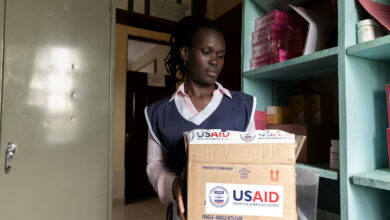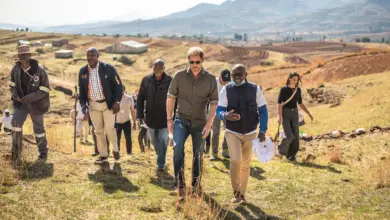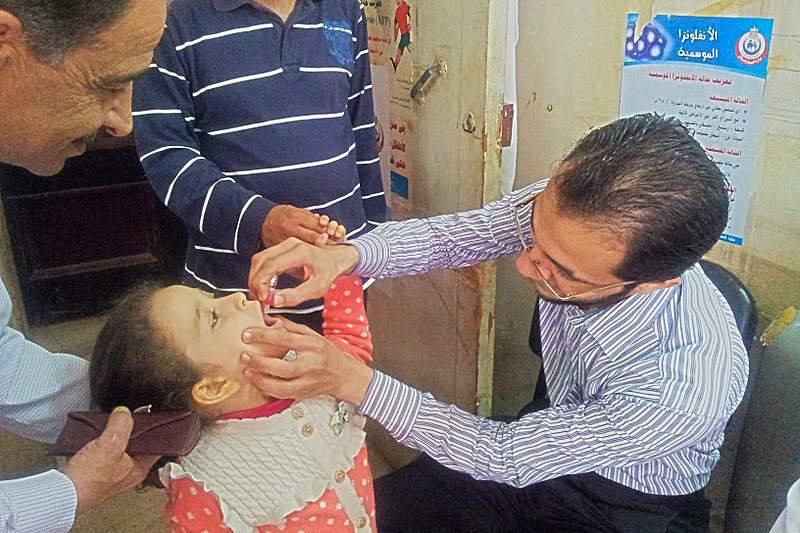Nafis Sadiq, special envoy for the UN secretary general on HIV/AIDS, spoke to Al-Masry Al-Youm this week on HIV/AIDS-related achievements, needs and challenges in Egypt and the region.
Al-Masry Al-Youm: How do you assess the overall situation of HIV and AIDS in Egypt, which is a low-prevalence country but where the disease is rapidly increasing?
Nafis Sadiq: Egypt is a low-prevalence country as we all know but it has all the high-risk behavior groups where HIV infection is increasing, including men who have sex with men, sex workers, and intravenous drug users. These groups are in some sense outside the law and there are cultural and value systems that block these people from getting attention. A lot of resources are being devoted to AIDS, as the government spends nearly US$3 million per year, but the amount going to programs for these groups is actually quite low. The Egyptian government needs to have a strong policy in this regard and I am pleased with the progress that has been made. Egypt has a National AIDS Program which started years ago, and is now much more active. It involves many more ministries and government departments. Egypt also has civil society participation, but not enough. Civil society participation needs to be expanded in the country coordinating mechanism, which is the body that overseas programs funded by the Global Fund, the major source of funding.
But I think the national strategic plan is still being developed. I also think there could be more collaboration between different departments, especially reproductive health and family planning and HIV and AIDS services programs. I think all countries with low prevalence have to do several things. First they must have the political will to address the problem. Second, they must collect all the relevant data on their epidemic. We are making progress but still the numbers are increasing. We have now an estimate of about 11,000 people living with HIV from 600 or 700 from the time I came here a few years ago. That’s more than 250 percent increase. It’s really exponential.
Al-Masry: You’ve advocated the multi-sectoral approach to HIV and AIDS. How do you see this progressing in Egypt?
Sadiq: There is much more discussion and collaboration between different government departments. Policies are still not consistent. For example, if a ministry is giving money to NGOs and allowing them to work with sex workers, they still don’t have the authorization of the police department. Also, the ministry of education is not providing proper family and sex education. You need to make a national policy and an implementation program for all government departments. There is a growing awareness of these issues which is good, but this policy needs to be adopted on a high level.
Al-Masry: You’ve pointed to low civil society participation and I think this is true with regards to both NGOs and human rights organizations. What does it take to increase their participation?
Sadiq: If you have your policy right, then you can secure funding, though it may not be as much as you need. But many sources of funding are available for civil society work. Egypt is getting money from the Global Fund and is going to apply to the tenth round. I think they will have access to a lot more money if the policies are consistent in all departments and at all levels, especially when working with civil society. Civil society in our countries is key when the government cannot have a direct program with sex workers for example. So unless you have a civil society really engaged and well funded, you won’t get anywhere.
Al-Masry: The few human rights organizations that do HIV and AIDS advocacy in Egypt identified three problems. The first two are the shortage of antiretroviral medicines and the lack of proper follow-up. The third is the stigmatization of patients by health workers. What’s your reaction to that?
Sadiq: Antiretroviral medication is now available, but there are access difficulties. That’s why we’ve been saying that when prison programs are doing counseling and testing, they must make treatment accessible. In addition to medication, you also need good aggressive treatment of secondary infections and good nutrition. Most people with HIV do not die of AIDS. They die of other infections and now, increasingly, of tuberculosis. You have to make sure they take the medication because in places in Africa, we’ve had many cases where patients feel better, so they give up their medicines or they have some side effects so they stop taking the medicine. Then they get drug resistant and they need to get second line treatments. You can’t allow that to happen. Treatment and care is very good but it must be delivered and maintained properly. The health system is a great issue because if it doesn’t treat people properly and aggressively and if it discriminates against them, then many of them will die of other infections, or infections will recur, or they will be exposed to other infections. We have to take up the education and the support to the health workers so that they feel reasonably confident that they will be protected from HIV. They are also scared of getting HIV.
Al Masry: How does the UN engage with the government when it comes to stringent policies, such as travel restrictions on people living with HIV/AIDS?
Sadiq: That’s one issue we’re taking up on a large scale. In the case of Egypt, it affects workers who go to the Gulf. We’re trying to get the travel ban lifted because HIV-positive people are not going to be a risk to the general population. That’s not a way to prevent the transmission of HIV. In a way, I think this is shortsighted and gives Egypt a bad name. You need to educate your own population, give them access to condoms, teach them how to use them not just outside, but within their own country. Besides discussing the matter with the ministries of labor and health, UNAIDS is planning a meeting with all Middle East countries on travel bans and trying to get them to lift their restrictions. Maybe if we can get one or two countries in the region to do it, then all other countries will follow as well because most of the countries in the region have travel restrictions on people with HIV. Some hamper their own citizens because they test them without telling them, they don’t even tell them that they are HIV positive, which is in fact even worse. They also deny them access to universities, armed services, etc.
Al Masry: What’s are high-profile issues for the 2010 HIV/AIDS global agenda?
Sadiq: This year, one issue is attention to the vulnerability of girls and women and there is a global framework to address this issue. There is also the lifting of the travel ban. A third issue is integrating different programs together, especially with other programs involving sexual reproductive health, so that HIV initiatives don’t remain separate and become part of normal activities. You can do a lot more with integrated programs.




